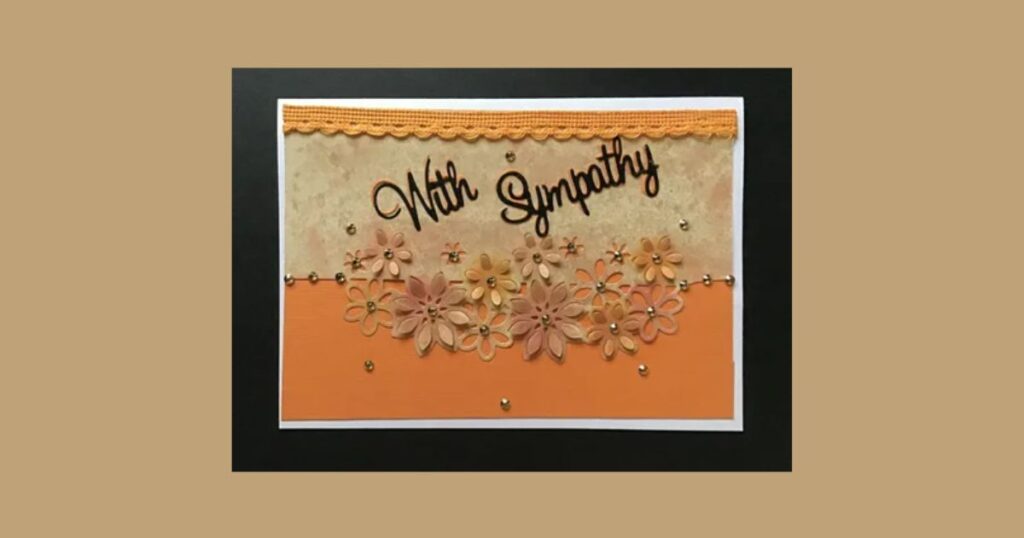A celebration of life represents a profound opportunity to honor someone’s memory while supporting their bereaved loved ones.
Whether you’re wondering if you should bring flowers to a celebration of life or questioning what food to bring, this comprehensive guide will help you navigate these important decisions with grace and sensitivity.
Understanding Modern Celebrations of Life
Today’s celebrations of life differ significantly from traditional funeral services. These gatherings focus on joy and remembrance rather than mourning alone.
When considering what to bring to a celebration of life event, it’s essential to understand this shift in perspective.
These ceremonies often incorporate personal stories, music, and meaningful tributes that reflect the deceased’s unique spirit and legacy.
The Evolution of Memorial Services
Modern memorial services have evolved to become more personalized and uplifting. Rather than focusing solely on loss, these gatherings celebrate the individual’s impact on others and their lasting legacy.
This shift influences what gifts and contributions are most appropriate for such occasions.
Planning Your Contribution
Before deciding what to bring to a celebration of life service, take a moment to consider your relationship with the deceased and their family. Every gesture, whether grand or small, carries meaning during this sensitive time.
Your contribution should reflect both respect for the departed and support for those left behind.
Making Meaningful Choices
The most impactful gifts often combine practical support with emotional comfort. When choosing what to bring, consider both immediate needs and long-term comfort.
Many bereaved families find themselves overwhelmed with flowers immediately after their loss but may lack support in the weeks and months that follow.
Timing Your Gesture
While the celebration of life service is a natural time to bring your gift, don’t feel limited to this moment. Sometimes, sending something a week or two after the service can provide comfort when the initial flood of support has subsided.
The bereaved family might better appreciate your thoughtfulness during this quieter period of grief.
Modern Approaches to Traditional Gestures
Digital Memorial Contributions
In our increasingly connected world, digital memorials have become meaningful ways to contribute to a celebration of life.
Consider creating a digital photo album, contributing to an online memorial page, or helping organize a virtual gathering for those who couldn’t attend in person.
These modern touches can complement traditional gestures while creating lasting tributes.
Sustainable Memorial Options
For environmentally-conscious families, consider sustainable alternatives to traditional sympathy gifts.
Memory trees, biodegradable urns with wildflower seeds, or donations to environmental causes can create living legacies that honor both the deceased and the planet.
Common Gifts and Tokens of Sympathy
Floral Tributes and Their Meanings
When deciding whether to bring flowers to a celebration of life, consider their profound symbolic value. White lilies represent purity and innocence, while roses express deep love and gratitude.
For a celebration of life for mom, consider incorporating her favorite flowers into a personalized arrangement. Florists can create custom pieces that tell a story through carefully chosen blooms.
Creating Meaningful Sympathy Cards

Do you bring a card to a celebration of life? Absolutely. A thoughtfully written card offers lasting comfort that families can revisit during difficult moments. When writing your message, share specific memories and express how the deceased touched your life.
Avoid generic phrases and instead focus on personal connections and authentic emotions.
Thoughtful Memorial Contributions
Charitable Donations in Memory
Many families appreciate donations to causes close to their loved one’s heart. When considering what gift to bring to a celebration of life, a charitable contribution can create a lasting impact.
Research organizations that aligned with the deceased’s values or supported them during their lifetime.
Memorial Jewelry and Keepsakes
Personalized memorial jewelry offers a tangible way to keep memories close. From engraved pendants to custom photo lockets, these pieces provide ongoing comfort to grieving family members.
Consider the recipient’s style and relationship to the deceased when selecting such intimate gifts.
Practical Support and Comfort
Food and Meal Coordination
Wondering what food to bring to a celebration of life? Focus on easily shareable, comforting dishes that travel well. Consider dietary restrictions and storage limitations.
Coordinate with other attendees to ensure families receive support over an extended period rather than all at once.
Essential Household Support
Practical contributions often provide immense relief during difficult times. Consider assembling care packages with household essentials, paper goods, or gift cards for basic services.
These thoughtful gestures help families manage daily tasks while grieving.
Creating Lasting Tributes
Memory Preservation Projects
One of the most meaningful ways to contribute to a celebration of life is by helping preserve memories. Consider organizing a group project where friends and family contribute stories, photos, and mementos to create a comprehensive memory book.
This can become a treasured keepsake that provides comfort for years to come.
Legacy Projects
Think about initiating or contributing to projects that extend the deceased’s influence into the future. This might involve establishing a scholarship fund, creating a community garden, or supporting a cause they were passionate about.
These projects help ensure their memory continues to make a positive impact.
Supporting Different Types of Services
Indoor Celebrations
When attending an indoor celebration of life, consider the space limitations and atmosphere. Smaller, more portable items might be more appropriate than large floral arrangements.
Think about gifts that can be easily transported home or shared among family members.
Outdoor Gatherings
For outdoor celebrations, consider weather-appropriate contributions. Perhaps bring sturdy outdoor photo frames, weather-resistant memorial items, or practical items like shade umbrellas or comfortable seating for elderly attendees.
Regional and Seasonal Considerations
Geographic Influences
Customs and expectations can vary significantly across different regions of the United States. In some areas, food contributions are highly valued, while in others, charitable donations might be more customary.
Research local traditions or ask someone familiar with the area for guidance.
Seasonal Adaptations
The season can greatly influence appropriate gifts for a celebration of life. Summer services might appreciate cooling fans or shade provisions, while winter gatherings might benefit from warm beverages and cozy throws.
Adjust your contribution accordingly while maintaining the spirit of remembrance.
Personal Touches and Heartfelt Gestures
Creating Memory Books
Memory books offer a beautiful way to preserve stories and photographs. For a unique celebration of life ideas, consider collaborating with others to compile memories, photos, and messages in a single, cherished volume.
This becomes particularly meaningful when creating a celebration of life ideas for mom or other close family members.
Customized Photo Collections
Visual memories provide powerful comfort during grief. Organize and digitize old photographs, create custom photo albums, or arrange for professional printing of favorite images. These tributes help families revisit happy memories while processing their loss.
Supporting Bereaved Family Members
Immediate Assistance
During the early days of grief, practical help matters tremendously. Offer specific support rather than vague assistance. Whether it’s handling household tasks, managing paperwork, or coordinating with other helpers, concrete aid provides real relief.
Long-term Care and Connection
Grief doesn’t end after the service. Maintain contact through regular check-ins, remembrance of special dates, and ongoing practical support.
This sustained connection proves especially valuable during holidays and anniversaries.
Cultural and Religious Considerations For A Celebration Of Life Service
Understanding Faith Traditions
Different faith traditions maintain specific customs around death and remembrance. Research appropriate gestures within the family’s religious context.
When in doubt, ask close family members or religious leaders for guidance.
Modern Multicultural Practices
Today’s celebrations often blend various cultural traditions. Remain sensitive to these nuances while offering support.
Your thoughtful consideration of cultural elements demonstrates a deep respect for the family’s heritage.
Professional Memorial Services
Working with Memorial Providers
Many families appreciate assistance coordinating with professional service providers. Whether it’s arranging for catering, photography, or other memorial services, offering to manage these details provides valuable support.
Digital Memorial Options
Modern celebrations increasingly incorporate digital elements. Consider contributing to online memorial pages, helping create video tributes, or assisting with live-streaming services for distant family members.
Special Considerations for Different Relationships
Immediate Family Support
Close family members require unique forms of support. When planning a celebration of life ideas after death, consider both immediate and long-term needs. Coordinate with other family members to ensure comprehensive support.
Friend and Colleague Contributions
Coworkers and friends often wonder what to say at a celebration of life party. Focus on sharing specific memories and offering concrete assistance rather than generic condolences. Consider organizing group contributions or support systems.
Long-Term Support Strategies
Monthly Remembrance Ideas
Consider creating a calendar of support that extends beyond the immediate period of loss. Perhaps arrange to send cards or small gifts on significant dates, or organize regular check-ins with family members.
This ongoing support can provide comfort during difficult milestones throughout the first year and beyond.
Creating Support Networks
Help organize a network of friends and family who can provide ongoing support. This might involve creating a schedule for regular visits, coordinating meal deliveries, or arranging help with household tasks.
The key is maintaining consistent support even after the initial period of grief.
Professional Support Resources
Grief Counseling Information
Consider compiling information about local grief support groups and counseling services. While you might not present this information immediately, having it readily available if the family expresses interest can be incredibly helpful.
Many people find professional support valuable in processing their loss.
Practical Service Connections
Research and organize information about local services that might be helpful to the bereaved family. This could include house cleaning services, lawn care, childcare, or meal delivery services.
Having this information readily available can make it easier for the family to accept help when needed.
Post-Service Support Systems
Organizing Ongoing Help
Create systems for sustained support after the immediate period of grief. Establish meal trains, household help schedules, or regular check-in routines.
These organized efforts prevent families from feeling forgotten as time passes.
Managing Special Occasions
Holidays, birthdays, and anniversaries often trigger renewed grief. Mark these dates and plan appropriate support.
Sometimes just acknowledging these difficult moments provides immense comfort.
Practical Planning Tips
Coordinating with Others
When multiple people want to help, coordination prevents duplication and ensures comprehensive support.
Use online tools to organize efforts and maintain clear communication among helpers.
Timing Considerations
Consider when different types of support prove most helpful. While some gestures work best immediately, others provide more value in the weeks and months following the loss.
Modern Memorial Trends
Technology Integration
Today’s celebrations often incorporate digital elements like video tributes or online memory books. Offer to help families navigate these modern options while maintaining personal touches.
Sustainable Memorial Options
Many families now prefer eco-friendly memorial options. Consider sustainable gifts or contributions that honor both the deceased and environmental values.
Etiquette During a Celebration of Life

Attending a Celebration of Life requires sensitivity and respect. Observing proper etiquette can help honor the memory of the deceased and support their family.
Here are some guidelines for maintaining decorum and showing compassion during this solemn occasion.
Arrival and Timeliness
- Arrive Early: Aim to arrive at least 15 minutes before the service begins. This allows you time to settle in without disrupting the proceedings.
- Dress Appropriately: While the atmosphere may be more relaxed than a traditional funeral, it’s still respectful to wear modest, subdued colors unless the family has specified otherwise.
Behavior During the Service
- Silence Phones: Ensure that your phone is on silent or turned off to avoid disruptions.
- Follow the Program: Participate in hymns, prayers, or other activities as outlined. Observe any cultural or religious practices respectfully.
- Be Mindful of Emotions: Allow space for others’ expressions of grief. Avoid loud conversations or behavior that might be distracting.
Offering Condolences to the Family
- Approach Gently: Keep condolences brief and sincere, as grieving family members may be overwhelmed. A simple “I’m sorry for your loss” can be enough.
- Avoid Overstepping: Respect the family’s space, and be mindful not to impose or pry into sensitive details.
- Offer Specific Help: If you wish to assist, propose concrete ways to help, such as “I’d be happy to help with meals this week” rather than “Let me know if you need anything.”
After the Service
- Attend the Reception: If invited, attending the reception can provide additional support to the family.
- Respect Boundaries: Be sensitive to whether the family wants to continue discussing the deceased or needs a break from the topic.
- Follow-Up: In the days following the service, a thoughtful message or visit can remind the family that they remain in your thoughts.
By observing these simple yet significant acts of courtesy, you can honor the deceased and offer comfort to their loved ones in a respectful and considerate manner.
Frequently Asked Questions
What is customary to bring to a celebration of life?
Common gifts and contributions for a celebration of life include flowers, sympathy cards, charitable donations, personalized memory items, comfort care packages, and providing practical support like meals or household assistance.
Do you bring flowers to a celebration of life?
Yes, flowers are a traditional and widely accepted gesture for a celebration of life.
What food should you bring to a celebration of life?
Providing comforting, easy-to-serve foods can be a practical way to support the bereaved family.
What is the best gift to bring to a memorial?
The “best” gift often depends on your relationship with the deceased and the needs of the family. The most important factor is that the gift comes from the heart.
How can I make a celebration of life unique?
Unique celebration of life ideas can include incorporating the deceased’s interests, interactive memory stations, group activities, eco-friendly elements, and active family involvement.
What to say at a celebration of life party?
When offering words of condolence, share memories, express the deceased’s impact, and provide concrete support. Avoid clichés and speak from the heart.
Do you bring a card to a celebration of life?
Yes, a sympathy card or handwritten note is a thoughtful contribution to a celebration of life. These written expressions of sympathy and remembrance provide lasting comfort that the family can revisit in the months and years following their loss.
Conclusion
When considering what to bring to a celebration of life, keep in mind that your thoughtful presence and genuine empathy often carry more weight than any material gift. Your presence shows that you care, and simply being there can offer immense comfort to those in mourning. Choose gestures and tokens of support that reflect the family’s unique values and needs, from traditional gifts like flowers or sympathy cards to more personalized offerings, such as keepsake items or donations to causes that were meaningful to the deceased. Thoughtful, small acts often leave a lasting impact.
Take into account the family’s cultural background and any religious customs, as these considerations can help you select a gesture that will be particularly appreciated. Practical assistance, emotional support, and even ongoing check-ins can make a difference far beyond the day of the service, offering reassurance that they are not alone in their grief. Grieving is a long process, and consistent, compassionate support provides invaluable comfort over time. Your efforts, even the simplest ones, remind the family that their loved one is remembered and honored.
More Post:
